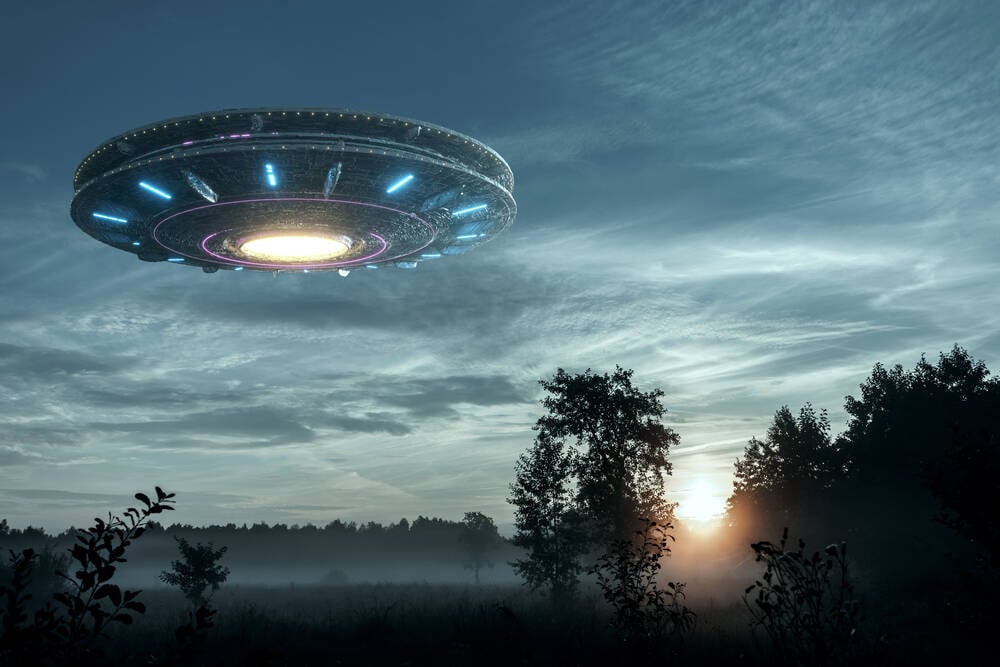The Pentagon’s UFO reporting form is now available online

The Pentagon’s UFO hunters have set up an online form to collect first-hand information about secret US government programs involving unidentified aerial phenomena (UAP).
The All-domain Anomaly Resolution Office (AARO) published the form this week, but it isn’t just for anyone to fill out. The team is looking for reports from current and former US government employees, service members, or contractors with knowledge of any UAP programs going back to 1945 – making this more of a historical survey than a fresh method of capturing contemporary close encounters.
“These reports will be used to inform AARO’s congressionally directed Historical Record Report and investigations into alleged US government UAP programs, due to Congress in June of 2024,” AARO director Sean Kirkpatrick said in a Halloween press briefing.
“[This] secure reporting mechanism … does not replace the standard reporting procedures established in the May 2023 Joint Staff general admin message to the services and the combatant commands regarding how to report current operational UAP reporting and sightings,” Kirkpatrick added.
In other words, if you’re still working for the government and have a new ET encounter to report, do it the same way you have been. Reports from the public are being considered for the forthcoming third phase of the program, a date for which isn’t clear.
Kirkpatrick added that the form isn’t designed to convey sensitive or classified information, which would be gleaned from those who filed the report during subsequent interviews, if the AARO team decides the findings merit investigation.
Established in July 2022, AARO previously reported to Congress that, while it has received hundreds of reports that are undergoing verification, it has yet to find evidence of any extraterrestrial objects.
“In our research, AARO has found no credible evidence thus far of extraterrestrial activity, off-world technology, or objects that defy the known laws of physics,” Kirkpatrick told members of the Senate Armed Services Committee’s Subcommittee on Emerging Threats and Capabilities in April.
“Only a very small percentage of UAP reports display signatures that could reasonably be described as anomalous,” Kirkpatrick added in his discussion with the Senators. Anomalies, mind you, don’t mean observers should jump to conclusions of the first or second kind.
Fast forward to today, and not much has changed, especially when it comes to government programs probing alien life or craft. “I currently have no evidence of any program having ever existed … to do any sort of reverse engineering of any sort of extraterrestrial UAP program,” the physicist and AARO director said.
With that in mind, AARO has a request.
“Please come forward using this new secure reporting mechanism. We want to hear from you,” Kirkpatrick said this week. “We have the security mechanisms by which to anonymously and confidentially bring [UAP reporters] in, hear what they have to say, research that information and protect it if it is truly classified.”
What about that whistleblower who already spilled the UAP beans?
For those who forgot the UFO fever that briefly gripped the US over summer, former US military officer and UAP analyst David Charles Grusch came forward in July to say he was aware of the feds collecting intact and partially damaged extraterrestrial vehicles for years – exactly the sort of thing AARO wants to learn about as part of its data collection efforts.
According to Grusch, the government had been withholding that information from Congress, and he was retaliated against when attempting to hand the info over to elected officials. Kirkpatrick said on Tuesday Grusch has not been in contact ,as far as he knows, despite invitations to have a chat.
“So, Mr Grusch, since AARO has stood up and since I’ve been director, has not come to see us and provided any information,” Kirkpatrick said in response to questions during his briefing.
“The last time I believe I spoke with Mr Grusch was when I was in the J2 [intelligence directorate] at US Space Command about five years ago, and it was not on this topic,” Kirkpatrick said. “We have extended an invitation at least four or five times now for [Grusch] to come in over the last eight months or so and [it] has been declined.”
In the meantime, Kirkpatrick noted that AARO has lots of new material due for public release “in the coming days and weeks,” including some things in the process of being declassified. “Not just operational videos, but historical documents,” Kirkpatrick said.
Maybe the truth, or some part of it, is in there. ®
This article has been archived for your research. The original version from The Register can be found here.


